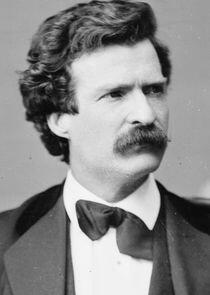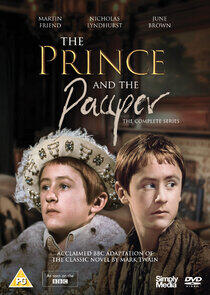
Mark Twain
Twain was raised in Hannibal, Missouri, which later provided the setting for both Tom Sawyer and Huckleberry Finn. He served an apprenticeship with a printer early in his career, and then worked as a typesetter, contributing articles to his older brother Orion Clemens' newspaper. Twain then became a riverboat pilot on the Mississippi River, which provided him the material for Life on the Mississippi (1883). Soon after, Twain headed west to join Orion in Nevada. He referred humorously to his lack of success at mining, turning to journalism for the Virginia City Territorial Enterprise.
Twain first achieved success as a writer with the humorous story "The Celebrated Jumping Frog of Calaveras County," which was published in 1865; it was based on a story that he heard at the Angels Hotel in Angels Camp, California, where Twain had spent some time while he was working as a miner. The short story brought Twain international attention. He wrote both fiction and non-fiction. As his fame grew, Twain became a much sought-after speaker. His wit and satire, both in prose and in speech, earned praise from critics and peers, and Twain was a friend to presidents, artists, industrialists, and European royalty.
Although Twain initially spoke out in favor of American interests in the Hawaiian Islands, he later reversed his position, going on to become vice president of the American Anti-Imperialist League from 1901 until his death in 1910, coming out strongly against the Philippine–American War and American colonialism. Twain published a satirical pamphlet, "King Leopold's Soliloquy", in 1905 about Belgian atrocities in the Congo Free State.
Twain earned a great deal of money from his writing and lectures, but invested in ventures that lost most of it, such as the Paige Compositor, a mechanical typesetter that failed because of its complexity and imprecision. He filed for bankruptcy in the wake of these financial setbacks, but in time overcame his financial troubles with the help of Standard Oil executive Henry Huttleston Rogers. Twain eventually paid all his creditors in full, even though his declaration of bankruptcy meant he was not required to do so. One hundred years after his death, the first volume of his autobiography was published.
Twain was born shortly after an appearance of Halley's Comet and predicted that his death would accompany it as well, writing in 1909: "I came in with Halley's Comet in 1835; it's coming again next year, and I expect to go out with it. It would be a great disappointment in my life if I don't. The Almighty has said, no doubt: 'Now here are these two unaccountable freaks; they came in together, they must go out together.'" He died of a heart attack the day after the comet was at its closest to the Sun.
Biography from the Wikipedia article Mark Twain. Licensed under CC-BY-SA. Full list of contributors on Wikipedia.
Part of Crew
Recently Updated Shows

Court Cam
From frightening outbursts to furious judges, Court Cam gives viewers an in-depth examination of some of the most stunning and emotional courtroom moments caught on camera. Hosted by Dan Abrams, each episode will include interviews with judges, witnesses, and victims who give a first-hand account of what really happened during these intense courtroom moments. This comprehensive look at how the action unfolds allows viewers to sit in the courtroom as they witness crazy courtroom moments from the most high-profile trials to minor court proceedings.

Elsbeth
Elsbeth follows Elsbeth Tascioni, an astute but unconventional attorney who utilizes her singular point of view to make unique observations and corner brilliant criminals alongside the NYPD. After leaving her successful legal career in Chicago to tackle a new investigative role in New York City, Elsbeth finds herself jockeying with the toast of the NYPD, Captain C.W. Wagner, a charismatic and revered leader. Working alongside Elsbeth is Officer Kaya Blanke, a stoic and ethical officer who quickly develops an appreciation for Elsbeth's insightful and offbeat ways.

The Morning Show
Nominated for three Golden Globes®, this unapologetically candid drama looks at the modern workplace through the lens of the people who help America wake up. Pull back the curtain on early morning TV.



